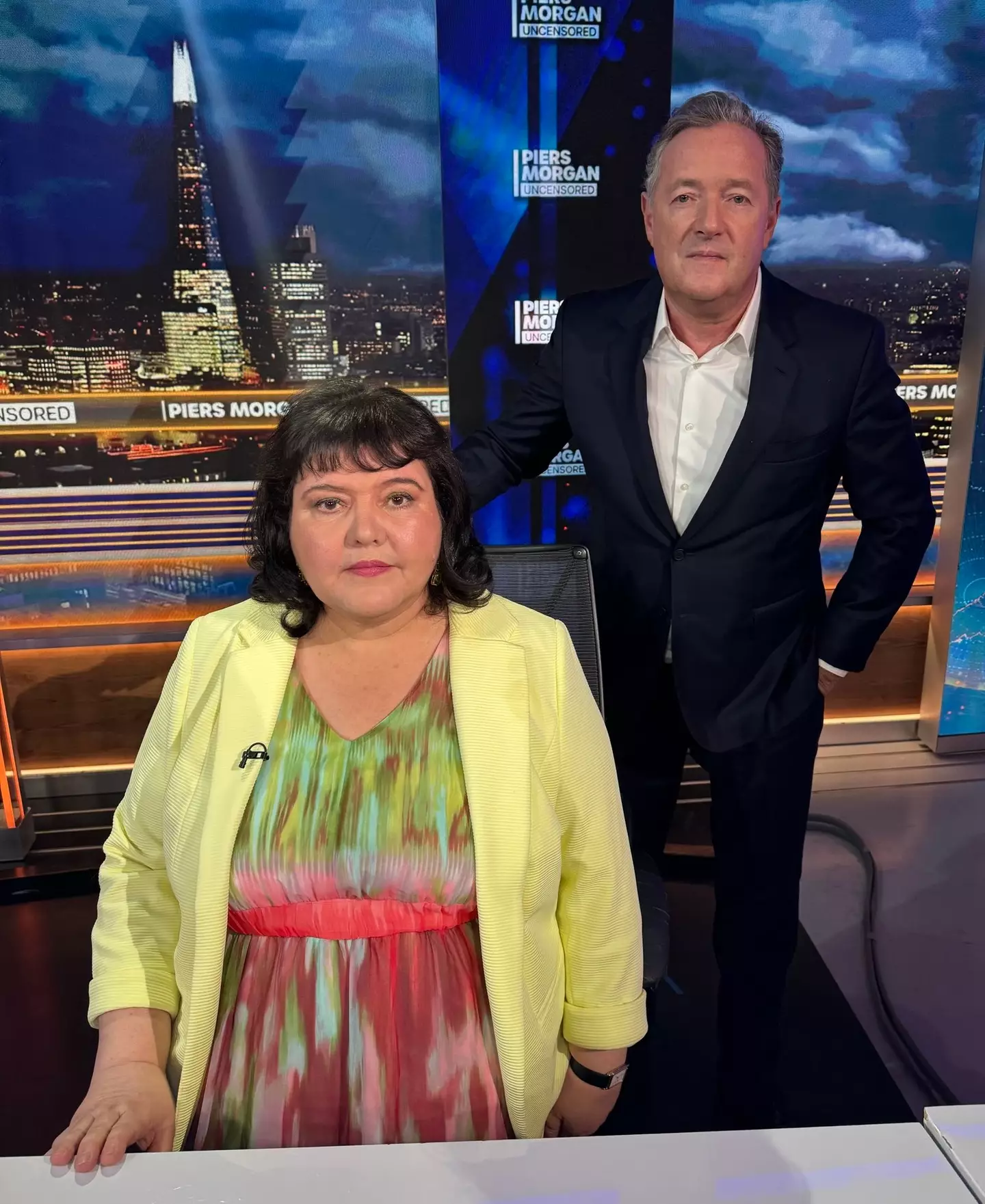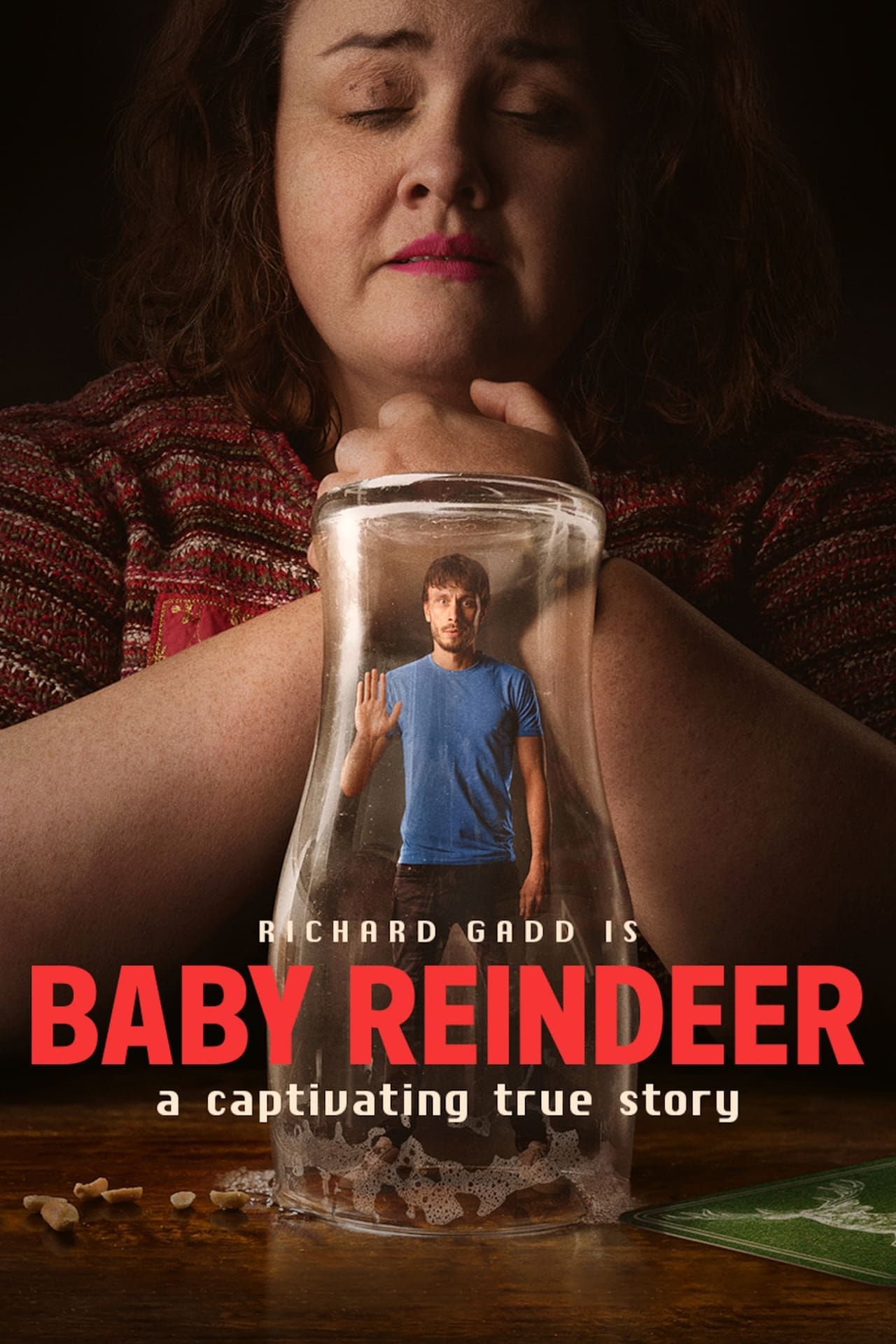The Unpacking Of Baby Reindeer: Interviews & Real-Life Impact
The Netflix series "Baby Reindeer" exploded onto screens, captivating audiences worldwide with its raw, unflinching portrayal of stalking, trauma, and identity. What began as a dark, comedic drama quickly transcended the realm of fiction, igniting a global conversation and an intense public fascination with the real-life individuals behind the characters. This unprecedented interest has led to a flurry of "baby reindeer interviews," offering glimpses into the complex realities that inspired the show, and often, adding new layers of controversy and ethical debate.
From the creator's candid reflections to the alleged real-life stalker's public appearances, these interviews have become crucial touchstones for understanding the show's profound impact. They force us to confront uncomfortable truths about victimhood, mental health, and the blurred lines between art and life, pushing the boundaries of how we consume and interpret true-story narratives.
Daftar Isi
- The Phenomenon of Baby Reindeer
- Richard Gadd: The Mind Behind the Madness
- The Real-Life Martha: Fiona Harvey's Perspective
- Ethical Dilemmas and Media Responsibility
- The Impact on Viewers and Society
- Beyond the Headlines: The Future of "Baby Reindeer Interviews"
- Navigating the Narrative: A Call for Critical Engagement
The Phenomenon of Baby Reindeer
"Baby Reindeer" emerged as an unexpected global sensation, a seven-part limited series that left an indelible mark on its audience. Created by and starring Scottish comedian Richard Gadd, the show is based on his harrowing real-life experiences with stalking and sexual assault. Its strength lies in its brutal honesty, its willingness to explore the uncomfortable psychological complexities of both victim and perpetrator, and its refusal to offer simplistic answers. Unlike many true-crime narratives, "Baby Reindeer" delves deep into the protagonist's own flaws and complicity, challenging traditional notions of heroism and victimhood. This nuanced, yet disturbing, portrayal resonated deeply, sparking widespread discussion across social media, news outlets, and private conversations, inevitably leading to intense scrutiny and demand for "baby reindeer interviews" with those involved.Richard Gadd: The Mind Behind the Madness
At the heart of "Baby Reindeer" is Richard Gadd, whose personal ordeal serves as the foundation for the series. His decision to adapt such deeply personal and traumatic events into a television show is a testament to his unique artistic vision and his courage.Biography and Creative Journey
Richard Gadd is a Scottish comedian, writer, and actor, born in 1989. Before "Baby Reindeer," he was already known in the comedy circuit for his raw, confessional, and often experimental work. His previous shows, such as "Monkey See Monkey Do" (which won the Edinburgh Comedy Award) and "Breaking Gadd," explored themes of mental health, masculinity, and trauma, often drawing from his own life. These earlier works laid the groundwork for the intensely personal narrative of "Baby Reindeer," showcasing his ability to transform painful experiences into compelling art. His transition from stand-up to a Netflix series marked a significant evolution in his career, bringing his distinctive voice to a global audience.| Attribute | Detail |
|---|---|
| Full Name | Richard Robert Steven Gadd |
| Date of Birth | 1989 |
| Nationality | Scottish |
| Occupation | Comedian, Writer, Actor |
| Known For | "Baby Reindeer," "Monkey See Monkey Do" |
| Genre | Dark Comedy, Drama, True Story |
Richard Gadd's Insights from "Baby Reindeer Interviews"
Following the show's release, Richard Gadd participated in numerous "baby reindeer interviews," offering invaluable context and his personal reflections. In conversations with outlets like *The Guardian*, *GQ*, and *The Hollywood Reporter*, Gadd consistently emphasized his primary intention: to explore the psychological impact of stalking and to portray the complexities of trauma authentically. He spoke about the difficulty of revisiting such painful memories, but also the therapeutic aspect of transforming them into art. Gadd clarified that while the show is "emotionally true," certain details were altered for dramatic effect and legal reasons, particularly to protect the identities of the real individuals involved. He expressed regret over the intense public speculation regarding the real Martha, urging viewers to focus on the themes of the show rather than engaging in a "detective hunt." His interviews revealed a deep empathy for all parties involved, including his stalker, highlighting the mental health issues that often underpin such behaviors. He aimed to humanize the experience, showing that victims are not always perfect, and perpetrators are not always purely evil. This nuanced perspective, shared through various "baby reindeer interviews," became a cornerstone of the show's critical reception and public discourse.The Real-Life Martha: Fiona Harvey's Perspective
Perhaps the most controversial aspect of "Baby Reindeer's" aftermath was the public identification of the real-life individual alleged to be Martha, Fiona Harvey. Despite Gadd's efforts to disguise her identity, online sleuths quickly connected the dots, leading to a media frenzy. This culminated in Harvey herself stepping into the spotlight, giving her own series of "baby reindeer interviews" that further complicated the narrative.The Piers Morgan Interview and its Fallout
The most prominent of these was Fiona Harvey's interview with Piers Morgan on "Piers Morgan Uncensored." In this highly anticipated and widely watched interview, Harvey vehemently denied many of the claims made in "Baby Reindeer." She stated that she had never stalked Gadd, never sent him tens of thousands of emails, and that the show's portrayal of her was largely fictional and defamatory. She admitted to meeting Gadd a few times but insisted their interactions were minimal and consensual. The interview was met with a mixed reaction. Some viewers found Harvey's demeanor erratic and her denials unconvincing, aligning with the show's portrayal. Others felt sympathy for her, arguing that she was being exploited and potentially defamed on a global scale. Legal experts weighed in, discussing the potential for defamation lawsuits against Netflix and Richard Gadd. The interview undoubtedly intensified the public's fascination with the show's true story, but it also raised serious ethical questions about media sensationalism and the protection of private individuals in the age of viral content. The fallout from this and other subsequent "baby reindeer interviews" she gave continues to unfold, with Harvey reportedly pursuing legal action.Ethical Dilemmas and Media Responsibility
The widespread attention generated by "Baby Reindeer" and the subsequent "baby reindeer interviews" has thrust crucial ethical dilemmas into the spotlight. The core issue revolves around the responsibility of creators and media outlets when dramatizing real-life trauma, particularly when it involves individuals who may be vulnerable or unwilling participants in a public narrative. * **Privacy vs. Artistic Freedom:** Where is the line between a creator's right to tell their story and an individual's right to privacy, especially when details are so specific that real people can be identified? Richard Gadd intentionally altered details to protect identities, yet the internet's ability to "dox" individuals proved overwhelming. * **Exploitation of Vulnerable Individuals:** Critics argue that featuring someone like Fiona Harvey in a high-profile interview, given her apparent mental health struggles, could be seen as exploitative. Does the public's right to know outweigh the potential harm to an individual? * **The Power of Narrative:** When a story is presented as "true," even with disclaimers, it holds immense power. The show's narrative, combined with the subsequent "baby reindeer interviews," shaped public perception of real people, potentially leading to harassment and online abuse. * **Media Accountability:** News outlets and interviewers face a significant responsibility to verify claims, provide context, and avoid sensationalism. The race for exclusive "baby reindeer interviews" can sometimes overshadow journalistic ethics. This case highlights the challenges of balancing public interest with the duty of care.The Impact on Viewers and Society
Beyond the immediate controversies, "Baby Reindeer" and the discussions sparked by its associated "baby reindeer interviews" have had a profound impact on viewers and broader societal conversations. * **Stalking Awareness:** The series brought the insidious nature of stalking into mainstream consciousness, showcasing its psychological toll and how difficult it can be for victims to escape or even be believed. It highlighted the often-overlooked fact that stalking can affect anyone, regardless of gender, and can be perpetrated by individuals who may themselves be struggling with mental health issues. * **Mental Health Discourse:** The show's portrayal of Richard Gadd's own struggles with trauma, self-blame, and mental health challenges resonated with many. It opened up dialogues about the complexities of healing, the importance of therapy, and the societal stigma surrounding mental illness. The "baby reindeer interviews" further illuminated these personal battles, offering a more complete picture of the human experience behind the drama. * **The Nuances of Victimhood:** "Baby Reindeer" challenged simplistic notions of victimhood, showing a protagonist who is flawed, makes questionable decisions, and even, at times, seems to invite interaction. This complexity, while uncomfortable, sparked important conversations about the messy realities of abuse and the spectrum of human behavior. * **Fact vs. Fiction in True Crime:** The show's "based on a true story" premise, combined with the subsequent "baby reindeer interviews" from real-life individuals, ignited a debate about the ethical boundaries of true-crime entertainment. How much artistic license is acceptable? When does dramatization cross into misrepresentation or even defamation? This case serves as a powerful cautionary tale for both creators and consumers of such content.Beyond the Headlines: The Future of "Baby Reindeer Interviews"
The intense public and legal scrutiny surrounding "Baby Reindeer" suggests that the saga is far from over. It's likely that we will see more "baby reindeer interviews" in the future, particularly if legal proceedings escalate. Fiona Harvey has publicly stated her intention to sue Netflix and Richard Gadd, which could lead to further revelations and legal battles playing out in the public eye. The case also sets a precedent for how future "true story" adaptations might be handled, potentially leading to more stringent measures to protect the anonymity of real-life individuals or more explicit disclaimers. The ongoing saga of "baby reindeer interviews" will undoubtedly continue to shape discussions around privacy, artistic responsibility, and the insatiable public appetite for real-life drama. The show's legacy may not just be its artistic merit, but its role in forcing a reckoning with the ethical implications of true-story narratives in the digital age.Navigating the Narrative: A Call for Critical Engagement
As consumers of media, especially content "based on a true story," the "Baby Reindeer" phenomenon and the subsequent "baby reindeer interviews" serve as a crucial reminder to approach narratives with a critical eye. It's essential to: * **Distinguish Fact from Fiction:** Remember that even "true stories" are dramatized for entertainment. Details are altered, timelines compressed, and characters are composites. * **Question Sources:** Consider the motivations behind interviews. Are they seeking truth, attention, or legal leverage? * **Practice Empathy:** Recognize that real people are involved, often with complex mental health issues and personal struggles. Avoid contributing to online harassment or judgment. * **Reflect on Themes:** Focus on the broader messages and themes the show aims to convey about stalking, trauma, and mental health, rather than getting lost in the sensationalism of identifying real individuals. The "Baby Reindeer" case is a powerful lesson in the profound impact of storytelling and the responsibilities that come with it. The ongoing saga of "baby reindeer interviews" has undeniably reshaped the public's understanding of this groundbreaking series. From Richard Gadd's courageous decision to share his truth to the controversial emergence of Fiona Harvey, these conversations have added layers of complexity, raising vital questions about privacy, ethics, and the very nature of truth in art. We encourage you to engage with these discussions thoughtfully, considering the multifaceted perspectives involved. What were your thoughts on the "baby reindeer interviews"? How did they change your perception of the show? Share your insights in the comments below, and consider exploring other articles on our site that delve into the intersection of true stories and media ethics.
'Real Baby Reindeer stalker' Fiona Harvey will be grilled by Piers

The Real Martha from 'Baby Reindeer' Set to Join Talk Show Tomorrow Night

Baby Reindeer: Where To Watch The Real-Life Martha's Interview With